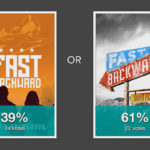The More Things Change… A Publishing Perspective
 Because I don’t want to come off as a slightly more active version of Get-Off-My-Lawn Guy, I’m not going anywhere near the phrase “Back in my day…” But in the writing and publishing world, as elsewhere, life has definitely changed.
Because I don’t want to come off as a slightly more active version of Get-Off-My-Lawn Guy, I’m not going anywhere near the phrase “Back in my day…” But in the writing and publishing world, as elsewhere, life has definitely changed.
When I began writing, the day job (among other obstacles, both real and imagined) discouraged me from trying anything longer than a short story. So that’s what I did. Short stories for kids, bundled up in the hope that I could write one good enough to get into a real magazine (the paper-and-ink, dentist-office-reception-area kind—no accessible Internet back then).
I wrote my tales on a pad of paper, or my desktop computer, or both. When I printed one out, it was with a dot matrix printer (look it up, kids). To find a magazine that was open to accepting something like what I’d written, I didn’t search online. There wasn’t any online. I found the magazine in a paper-and-ink publication called Writers Market.
When I submitted my stories, it wasn’t via email. There wasn’t any email. I put a nice fresh version of the printout and a hopeful cover letter in a large envelope along with a self-addressed and stamped envelope (in case of rejection) and stuck it in the mail.
And waited.
That hasn’t changed.
Eventually I got some of those short stories published in magazines. Another idea blossomed. It outgrew the short story constraints. I decided to write it as a novel, never mind the day job. I had a whole hour every day riding the bus back and forth to work. I could use that hour to write. No laptop, though. There weren’t any laptops. But I had a pad of paper (several, actually) and lots of pens. So I sat in the back of the bus and got to it.
I aimed for a page a day. At the end of the day, or several days, I’d enter my handwritten output in my home computer, which gave me a chance to do some revising. It also allowed me to get the story to a place where further revision got much more practical. Cut and paste and rearrange and add. At least I’d escaped the era of typewriters and Wite-Out (look it up, kids) and carbon paper and mimeograph machines (don’t abandon your Googling quite yet, kids).
Then, after I “finished” the first draft and more revisions and got the story as good as I could get it (I thought), it was time to put a much bigger manuscript package together and begin mailing (real mailing, you young whippersnappers) it out to publishers who I thought might like it (per Writers Market, again).
Which is all a big preamble to my point, which is that technological changes in writing and publishing have made it easier to write, submit, and publish a story. And for the most part, that’s a good thing. There are laptops now, and tablets, and smart phones, and online researching, and software to guide your writing through the style and grammar and spelling hazards. There’s the universality of Microsoft Word and all of its functions and bells and whistles that make revision and editing a more friendly and shareable process. More people have a chance to be writers.
There are some “yes, buts,” though. It’s much easier to get the words down now, but not much easier to get the right words down, the words that make an engaging story. And “publishing” may be easier, but traditional publishing is just as hard if not harder. Which makes self-publishing an attractive alternative. It’s relatively quick and easy. As far as content goes, there are practically no obstacles. Which leads to stuff getting published that wouldn’t have been publishable in the “old days.”
There are reasons agents exist. Besides shepherding strong manuscripts through the querying and acquisition and business maze, agents are the first line of defense against manuscripts that aren’t ready to be seen, manuscripts that haven’t been revised and edited and critiqued and cut and focused and sharpened over and over.
Also, there are reasons publishers pay editors to acquire only what they think is the best stuff and then spend months or years working with the author to make it better. Writers who want to get published the old-fashioned way, or even the new-fashioned way, need to keep that approach and those standards in mind. There’s a lot of competition out there, and only the best of it (usually) will rise to the top.
Editors will only acquire projects that they (and their marketing department) think will succeed. Writers who self-publish should have that same mindset. Critique groups. Trusted readers. A professional editor. A professional cover.
Why publish something that isn’t your best?
 Previous Post
Previous Post Next Post
Next Post




